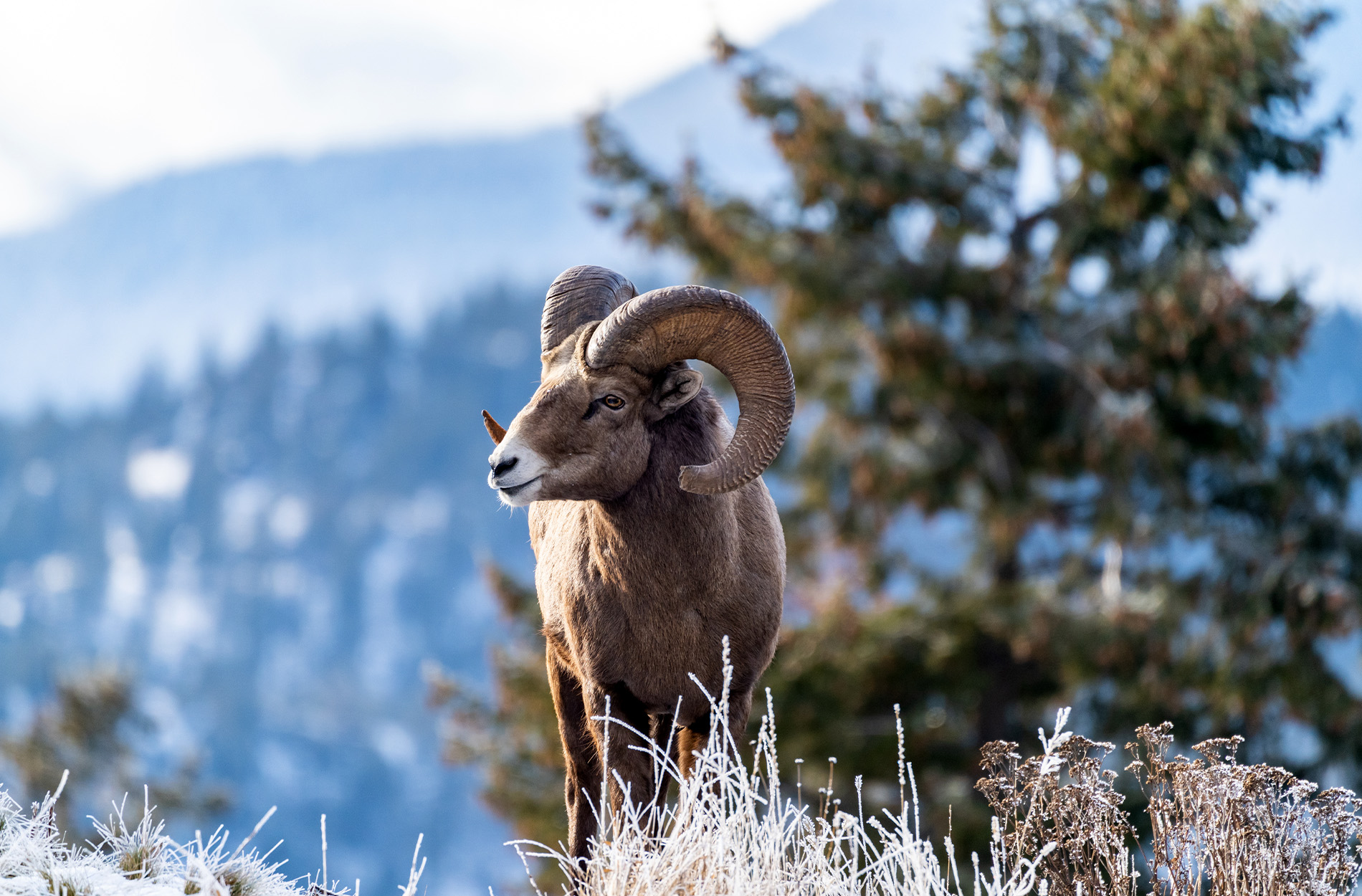The world of wild sheep conservation hit a new milestone in January, when a single New Mexico bighorn tag sold for $1.3 million at auction during the 2025 Sheep Show. This is the highest price ever paid for a big-game auction tag in North America, replacing the previous record of $725,000 for a mule deer tag that was set at the Western Hunting & Conservation Expo in 2023.
The auction tag that sold at the show in Reno on Jan. 18 is for one Rocky Mountain bighorn sheep in New Mexico. It allows the hunter to choose from any open unit in the state, and to hunt there from Aug. 1 through Dec. 31. The name of winning bidder has not been made public on the Wild Sheep Foundation’s website, but a video shared to social media shows the level of excitement in the room when the winning bid was announced.
As Outdoor Life has reported in the past, the staggering amounts that some hunters are forking over for these highly coveted tags can be controversial. A lot of everyday hunters in the West — some of whom wait a lifetime for a public-draw sheep tag that never comes — don’t like the idea of tags going to the highest bidder. They say it defies the ideals of equal access to public wildlife and pushes big-game hunting even further into the domain of the wealthiest. This has forced some state game agencies, including Arizona, to reconsider the auction model and eye alternatives like raffle tags.
Read Next: Auction vs. Raffle Tags: Should States Stop Selling Big-Game Tags to the Highest Bidder?
At the same time, however, auction tags contribute an outsized and overwhelming amount of conservation funding that helps grow and maintain sheep herds and other wildlife. And since more healthy sheep (theoretically) makes more tags available in the public draw, this ultimately benefits all hunters. In this light, the fact that auctions keep breaking records is worth celebrating.
“It’s amazing the number of records that keep getting surpassed each year,” president and CEO of the Wild Sheep Foundation Gray Thornton said after last year’s Sheep Show.
The same New Mexico bighorn tag that just sold for over $1 million went for $600,000 at the 2024 show in Reno. It was one of 13 sheep tags that sold for record-high amounts that year. Altogether, those auction tags added up to $6.5 million in funding that trickles down into wild sheep conservation initiatives around the Western U.S.
“The fact that a handful of individuals stepped up at these levels to keep more wild sheep on the mountain for everyone, and one day put more sheep permits into the public draw, is the definition of paying it forward,” Thornton continued. “That’s the backbone of conservation.”
There are several ways wildlife managers use auction tag revenue to benefit sheep conservation, and the breakdown varies by state. In the case of the $1.3 million tag that just sold, New Mexico law requires that 90 percent of the proceeds go directly into the state’s Bighorn Sheep Enhancement Program.
The program incorporates everything from research projects, like putting GPS collars on sheep, to physical translocations, where sheep from healthy herds are moved by helicopter into areas and new mountain ranges. These translocations remain an essential part of modern-day sheep conservation, and they’re the main reason why New Mexico’s desert bighorn population has increased from 170 in 2001 to roughly 1,500 today.
Another big focus in New Mexico, especially, has been on understanding and preventing disease in sheep herds. The state is home to both Rocky Mountain bighorns and desert bighorns, and respiratory diseases like pneumonia are among the biggest threats facing the two species today, according to the New Mexico Department of Game and Fish. These outbreaks can kill off entire herds, and they’re usually transmitted by domestic sheep and goats, or by the wild horses and burros living on public land.
Read Next: In Utah, a Desert Bighorn Sheep “Nursery” Planned for Private Ranch
The most recent scare in New Mexico was a pneumonia outbreak in 2021 that hit the Rio Grande Gorge herd, one of the most visible bighorn herds in the state. None of those sheep died, which surprised NMDFG managers, but they’ve continued to keep a close eye on the herd. The incoming funds generated by the $1.3 million auction tag should help with those efforts.
Read the full article here
